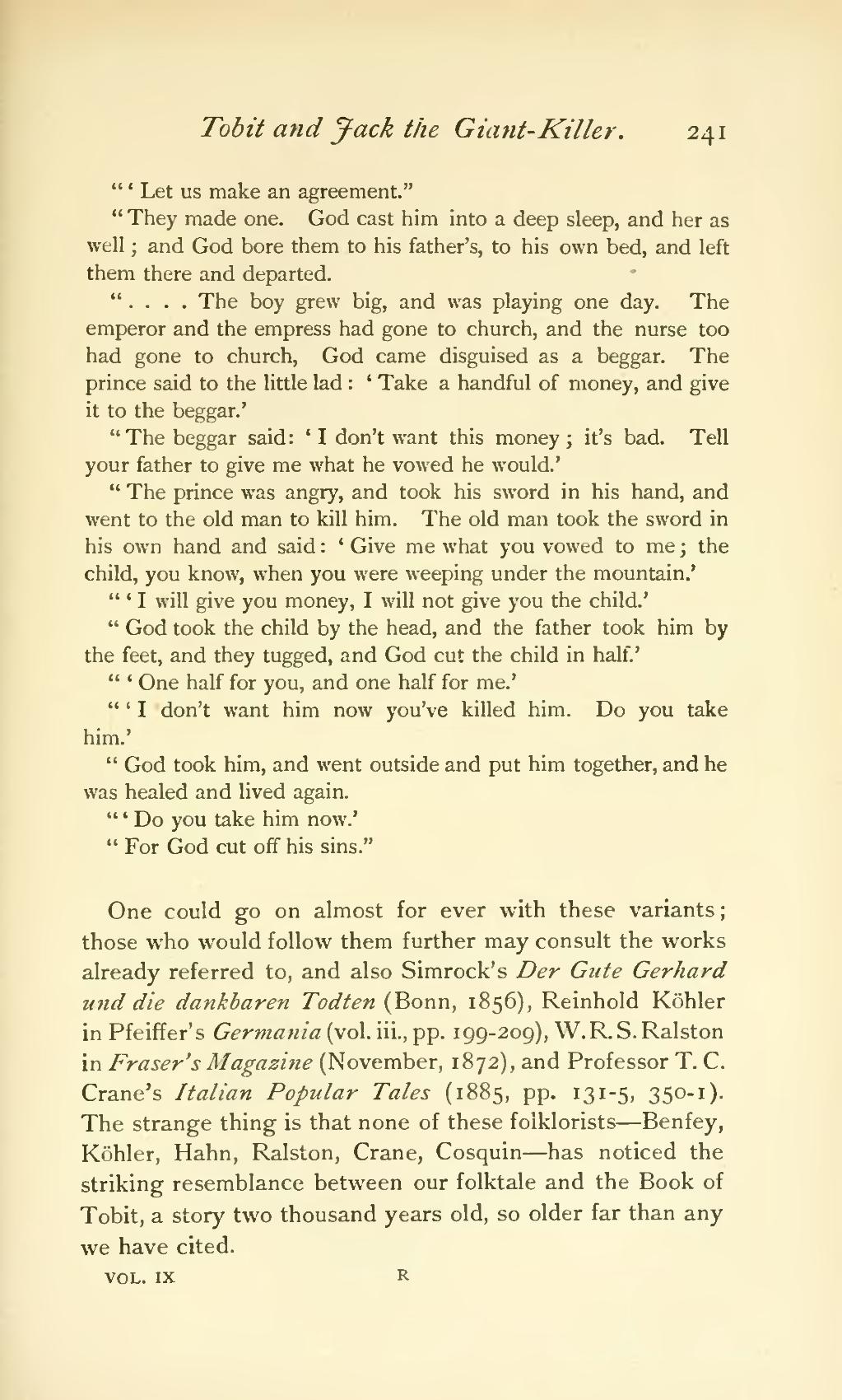"'Let us make an agreement."
"They made one. God cast him into a deep sleep, and her as well; and God bore them to his father's, to his own bed, and left them there and departed.
". . . . The boy grew big, and was playing one day. The emperor and the empress had gone to church, and the nurse too had gone to church, God came disguised as a beggar. The prince said to the little lad: 'Take a handful of money, and give it to the beggar.'
"The beggar said: 'I don't want this money; it's bad. Tell your father to give me what he vowed he would.'
"The prince was angry, and took his sword in his hand, and went to the old man to kill him. The old man took the sword in his own hand and said: 'Give me what you vowed to me; the child, you know, when you were weeping under the mountain.'
"'I will give you money, I will not give you the child.'
"God took the child by the head, and the father took him by the feet, and they tugged, and God cut the child in half.'
"'One half for you, and one half for me.'
"'I don't want him now you've killed him. Do you take him.'
"God took him, and went outside and put him together, and he was healed and lived again.
"'Do you take him now.'
"For God cut off his sins."
One could go on almost for ever with these variants; those who would follow them further may consult the works already referred to, and also Simrock's Der Gute Gerhard und die dankbaren Todten (Bonn, 1856), Reinhold Köhler in Pfeiffer's Germania (vol. iii., pp. 199-209), W.R.S. Ralston in Fraser's Magazine (November, 1872), and Professor T. C. Crane's Italian Popular Tales (1885, pp. 131-5, 350-1). The strange thing is that none of these folklorists—Benfey, Köhler, Hahn, Ralston, Crane, Cosquin—has noticed the striking resemblance between our folktale and the Book of Tobit, a story two thousand years old, so older far than any we have cited.
